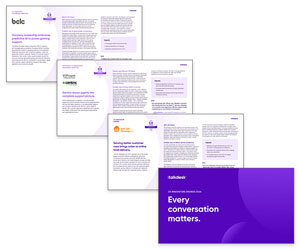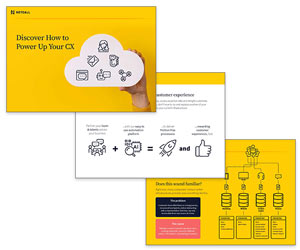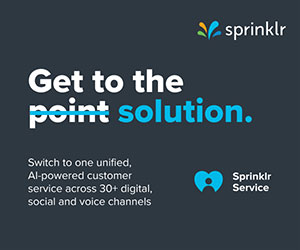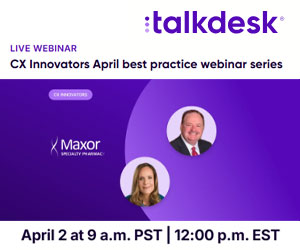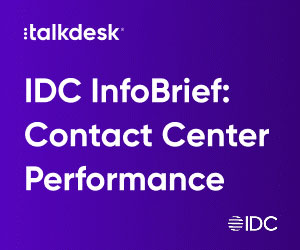How do we align cost effective, highly managed performance with the ‘buzz’ of agent and customer satisfaction? Ian Morton provides some answers.
“Stop doing dumb things to customers!” – Look at two basic premises:
1. Stop thinking about headcount – concentrate on getting the customer management and satisfaction levels correct.
2. Focus on why customers are calling – listen to the ‘voice of the customer’.
Most customers will not actually want to call your centre. It’s usually something that the business has done, or not done, that has triggered the call and does not add to the customer experience or a customer’s positive perception of the business.
Call and contact centres are some of the most closely monitored and managed environments within any industry. For most, despite the fact that we talk about ‘customer satisfaction’ and ‘quality of service’ the daily mantra is: “Answer the calls, make sure you only talk for X seconds, make sure you wrap up in X seconds “”
Is it any surprise then that our biggest assets, the guys on the phone, become inward looking and frustrated?
Built into normal human nature is the desire to help others. When we do, we usually get a ‘buzz’ – that simple but highly important motivation that builds up to create satisfaction and a feeling of worth. For the recipient, it usually means a problem solved or a situation handled well, encouraging to the customer and hopefully stimulating retention or increased usage or sale of product.
Shortening call times, whilst still improving quality, creates a conflicting message to our agents. No matter how you wrap that parcel, the Sellotape doesn’t stick!

Your agents will focus on their call and wrap time targets at the expense of satisfying the customer’s needs, and some even devise cunning ways of always making their numbers.
Most operations managers get caught between a rock and a hard place. They truly want to deliver excellence in service but, realistically, are controlled by cost.
Bizarrely, most call centres carefully devise expensive recruitment programs designed to employ candidates who are passionate about delivering exceptional customer service – and then proceed to knock it out of them by their tightly controlled regime of numbers and targets that drive the wrong behaviour.
We know something is wrong when we see the following types of agent behaviour:
- Won’t seek learning opportunities to improve personal performance
- Aren’t prepared to take calculated risks or leave their ‘comfort zone’
- Don’t anticipate problems or propose alternative solutions
- Won’t take ownership of customer service problems or attempt to resolve them
Most businesses these days have a means to track ‘why our customers contact us’ and develop a whole raft of reason codes which front-line agents are expected to use accurately following each interaction. The upshot is companies are paying a lot of people to gather a lot of data that creates nice coloured charts.
You need to encourage your agents to challenge why customers are calling. Use team huddles, one to ones, anything to get your agents’ involvement to be part of the process. You will hear everything you need from your agents about why customers are frustrated and dissatisfied.
Here some tips to improve customer satisfaction.
Listen to the customer not the process.
Simplify your contact codes, get them to reflect accurately the ‘voice of the customer’ so you can understand why they are really calling.
Listen to your agents.
Create the environment where you can openly discuss what the customers are saying and balance feedback from across the teams.
Drive action for each call category.
Identify the strategy behind each call category. You can then start driving development activity throughout the business to eliminate low value / irritant calls.
Provide feedback.
Develop a strong communications plan. There is nothing worse for staff than putting an idea forward and hearing nothing for weeks on end, if at all.
And finally”
Make sure it happens.
Companies who have used this type of approach have seen significant reductions in call demand, which has allowed them to focus on quality and service. It’s not easy, and will take time to achieve, but the end result proves it is the only sane option!
Ian Morton is a contact centre specialist with Budd, helping clients to develop effective delivery of service through understanding customer needs and establishing processes and tools to enable continuous improvement.www.budd.uk.com
Author: Jonty Pearce
Published On: 21st Nov 2007 - Last modified: 19th Dec 2018
Read more about - Customer Service Strategy, CX













